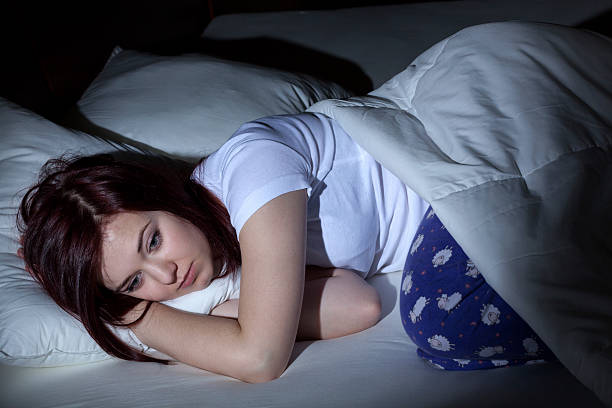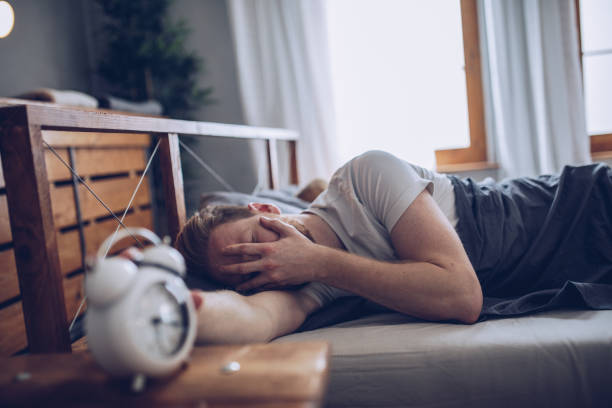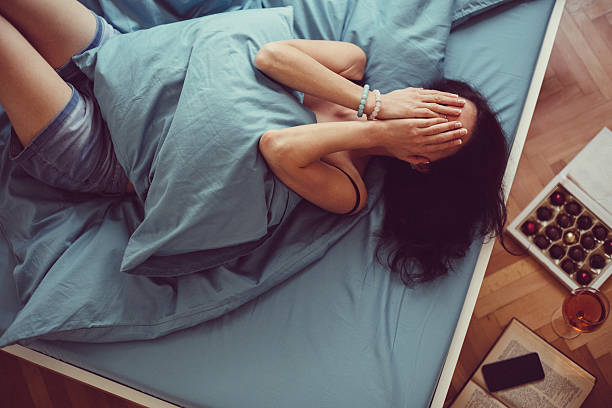8 Bad Sleeping Habits That Can Ruin Your Life
How to Identify and Overcome Sleep-Stealing Behaviors

These eight poor sleeping habits might have a detrimental effect on your life:
- Inconsistent Sleep Schedule: Effect:Disrupts your body's circadian rhythm, which causes daytime exhaustion, diminished attentiveness, and trouble falling and waking up.

2. Time Spent on Screen Before Bed: Result: Electronic device blue light inhibits the creation of melatonin, which makes it more difficult to fall asleep. Additionally, it might keep you alert by stimulating your intellect.

3. Too Long or Too Late Napping: Effect: can disrupt your sleep at night, particularly if you take a late-afternoon nap. You may feel sleepy and confused after taking a long nap.

4. Alcohol and Caffeine Before Bed: Result: As a stimulant, caffeine may affect the timing and quality of sleep. Later in the night, alcohol can interfere with sleep cycles, even if it may make you feel sleepy at first.

5. Having a substantial meal right before bed: Result: Indigestion and trouble falling asleep are two consequences of eating a big meal.

6. Exercising Too Near Bedtime: Result:Excessive physical activity might raise your body temperature and interfere with your ability to unwind and sleep.

7. An Invigorating Bedroom Setting: Impact: Uncomfortable temperatures, light, and noise can all interfere with sleep.

8. **Stress and Worry Before Bed: Effect: It can be hard to unwind and go to sleep when you have a lot of anxious thoughts going through your head.

If you're having trouble with any of these routines, think about making little adjustments to enhance the quality of your sleep.
Only informational reasons are served by this. See a professional for diagnosis or medical advice.
The following advice will assist you in safeguarding yourself against the detrimental consequences of poor sleeping habits:
1. Create a Regular Sleep Schedule: To maintain your body's natural sleep-wake cycle, go to bed and wake up at the same time every day, including on weekends.
2. Establish a Calm Bedtime Routine: Unwind an hour or two prior to bedtime by reading, taking a warm bath, or enjoying soothing music. Steer clear of stimulating activities like using electronics or watching TV.
3. Make the Most of Your Sleep Environment: Be certain that your bedroom is cold, quiet, and dark. Invest in linen, pillows, and a cozy mattress. To reduce distractions, think about using earplugs, an eye mask, or a white noise generator.
4. Reduce Screen Time Prior to Sleep: The hormone that controls sleep, melatonin, can be disrupted by the blue light emitted by electronic devices. At least one hour before going to bed, stay away from screens.
5. Steer clear of alcohol and caffeine right before bed: Alcohol and caffeine can both affect how well you sleep. Steer clear of these drugs in the evening.
6. Get Regular Exercise: Exercise might help you sleep better, but stay away from strenuous exercise right before bed.
7. Manage Stress: Before going to bed, use relaxation methods like yoga, meditation, or deep breathing to lower tension and anxiety.
8. Disqualify Any Medical Conditions: To rule out any underlying medical disorders that might be influencing your sleep, see a healthcare provider if you routinely have trouble falling asleep even when you practice proper sleep hygiene.
You may prevent the detrimental impacts of poor sleeping habits and greatly enhance the quality of your sleep by putting these ideas into practice.











































































































































































































